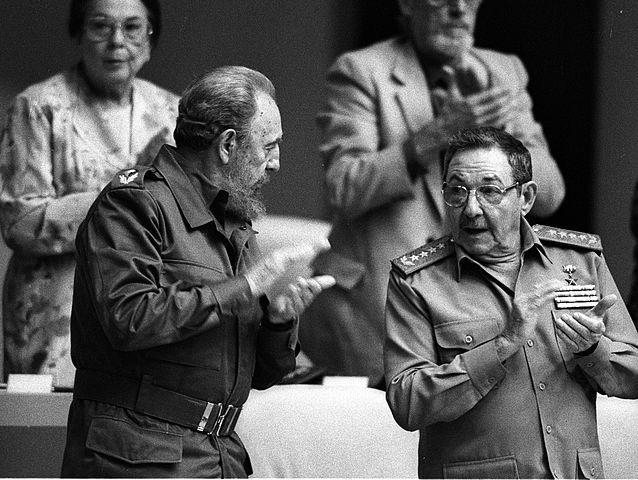
The world
The justifications put forward by allied nations to strike the Assad regime in Syria last week rest on the fact that using chemical weapons is unequivocally unacceptable. Three powerful pieces—one each from Andrew Rawnsley and Haid Haid in the Guardian, and a third by Shiraz Maher and John Bew in New Statesman—provide insightful analyses of the price paid by Syrians for the international community’s policy failures. A final piece from the European Council on Foreign Relations provides interesting commentary on how the lack of a broader strategic policy for Syria threatens to escalate the conflict.
A recent Bloomberg View analysis discusses why Germany didn’t participate in last week’s strikes on Syria while it is active in its own way, reflecting Chancellor Angela Merkel’s compromise policy. In an interview for Der Spiegel, Germany’s new Foreign Minister, Heiko Maas, argues for a change of direction in German foreign policy. To contextualise this, read The Economist’s special report on ‘The new Germans’, which explores the changing political, economic and social culture in Germany, and how the country deals with identity questions.
Cases of sexual violence across India are rampant, but the horrific rape and murder of 8-year-old Muslim girl Asifa Bano three months ago has sparked mass protests. Al Jazeera’s in-depth feature details the case, and CNN analyses the ‘entanglement of party politics and sexual violence’, situating current events within a widening national crisis of Hindu nationalist–inspired violence against Muslims. Older articles in DW and by Reuters discuss the general growing Islamophobia in Southeast Asia.
An era seems to have ended in the Caribbean: Cuba’s National Assembly chose Miguel Díaz-Canel to replace Raúl Castro as president. The Conversation profiles the new man and the challenges he faces.
New research by the German Marshall Fund explores the role of the Indo-Pacific in determining the liberal international order’s future. For those with a strong subject matter interest, check out Justin Vaïsse’s new biography of Zbigniew Brzezinski, Polish-American strategist and national security adviser to Jimmy Carter, who ‘grappled with the dilemma of relative [US] decline and the rise of new international challenges’. On the decline of liberal democracy in other regions, Ivan Krastev worries in Foreign Affairs about the success of populists in establishing ‘a new illiberal consensus’ in Hungary and Poland. An alternative perspective in the Independent offers an ‘intimate portrait of Poland and its people’ in 18 black-and-white photos.
For arts and culture fans, New Statesman profiles one of cinema’s greatest oeuvres, Casablanca, arguing that the mostly immigrant cast was a key, defining feature of the film’s sophistication and cultural significance. The Broadway musical Hamilton—a ‘portrayal of immigrant inclusiveness [that] could not be more timely—is enjoying similarly good fortune in terms of its contemporary relevance. Kendrick Lamar winning a Pulitzer Prize for music also demonstrates that the arts must reflect social change.
And for a final, quirky and fascinating read, The Atlantic documents the vast world of wasps. A bit specialised perhaps, but good for building up a store of freaky facts.
Tech geek
The new Lockheed Martin AGM-158B joint air-to-surface standoff missile–extended range (JASSM-ER) was one of the weapons used by the US and allies during the latest Syria strikes. War is Boring and The National Interest have detailed analysis of the JASSM-ER. The missiles were launched from B-1B bombers, demonstrating that the aircraft remains ‘bad to the bone’ in a standoff role.
Russia is developing its advanced T-14 Armata main battle tank, which has an active protection system and an unmanned turret, as well as an optional upgrade to a 152-millimetre main gun that would significantly outrange 120-millimetre guns on NATO tanks. There’s debate over whether the 152-millimetre gun would have the ability to fire nuclear rounds (a very bad idea for several reasons). But according to IISS, Russia at best will be able to afford 100 of the tanks by 2020. Here’s an excellent analysis of the T-14 Armata.
With growing challenges from China’s PLA Navy eroding the US Navy’s qualitative lead, and in some respects its quantitative advantage as well, decision-makers in Washington are thinking about next-generation capability. This explains how the need to replace the aging Ticonderoga-class guided missile cruisers is becoming more urgent. Also, the US Navy’s ‘next-generation frigate’ (FFG(X)) program will produce 20 new FFGs after problems in the littoral combat ship program.
Finally, here’s an interesting analysis on the F-35 from the US Air Force Chief of Staff, General David Goldfein, who describes the jet as a ‘computer that flies’.
Multimedia
In this photo series, the Guardian shows the rather bleak life of the remaining inhabitants in the Russian Arctic city of Vorkuta.
101 East investigates whether there’s a new stolen generation in Australia because more Indigenous children are being removed from their families than ever before. [26:00—includes graphic descriptions of violence and abuse]
Has Sweden’s open-door immigration policy caused social tension? The left sees Sweden as a paragon of social justice and liberalism; the right says there’s a link between crime and immigration. BBC Newsnight explains. [11:39]
Podcasts
ABC Nightlife talks about life after a career in the Australian Defence Force with several former Australian Army officers. [50:09]
British anti-fascist organisation ‘HOPE not hate’ aired its inaugural podcast about the latest activities of the far-right in Britain, plus some tight analysis of racism, radicalisation and integration. [35:48]
Events
Canberra, Monday, 23 April, 6–7 pm, ANU Strategic and Defence Studies Centre, ‘Morale and combat motivation of British and Anzac troops at Gallipoli’. Register here.
Canberra, Thursday, 26 April, 2–4 pm, ANU College of Asia and the Pacific, ‘The bereaved families of Korea’s grievous war’. Registration essential.
Sydney, Thursday, 26 April, 6–7.30 pm, The University of Sydney, ‘The political economy of Han Xinjiang: organised dependency and lucrative chaos’ with ANU’s Tom Cliff. Details and registration here.